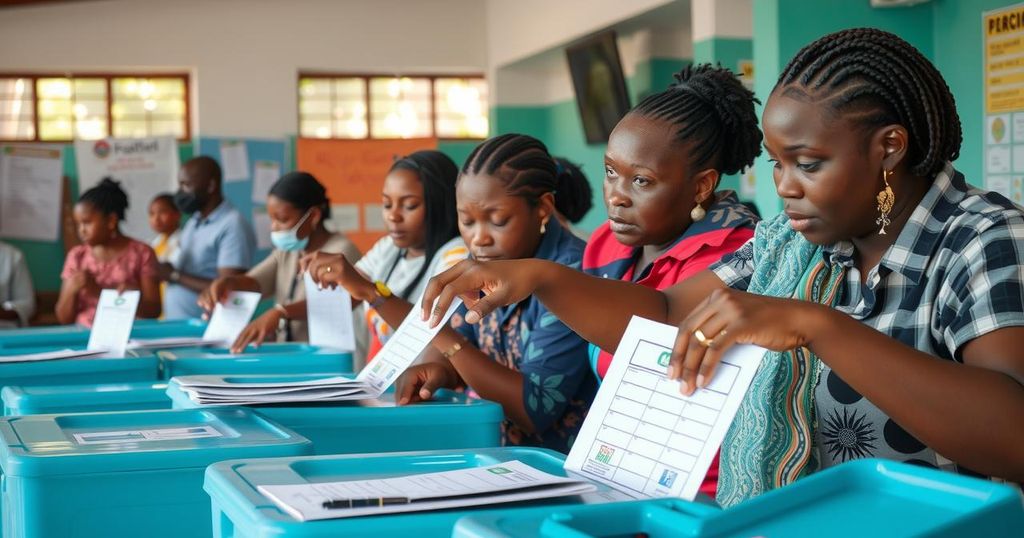World news
ABDALLAH SAMBI, AFRICA, AUSTRALIAN ASSOCIATED PRESS, AZALI ASSOUMANI, COMOROS, ELECTION FRAUD, GOVERNANCE, GOVERNMENT, HAMIDOU KARIHILA, HOPE OF THE COMOROS, INDIAN OCEAN, INDIAN OCEAN ARCHIPELAGO, JUWA, NO, NOUR EL - FATH, OPPOSITION, POLITICS, PRESIDENTIAL ELECTION, REUTERS, SUPREME COURT
Michael Grant
0 Comments
Comoros Votes in Crucial Parliamentary Elections Amidst Political Tensions
Voters in Comoros are electing a new 33-seat parliament, a year after President Azali Assoumani’s disputed re-election. The elections involve approximately 338,000 registered voters, with nearly 100 candidates running. Opposition parties criticize Assoumani for authoritarianism and potential nepotism, while some advocate for a boycott of the elections. Results are expected by Friday.
Voters in the Comoros archipelago are participating in parliamentary elections, filling the 33-seat assembly, subsequent to the controversial re-election of President Azali Assoumani last year, which the opposition claims involved significant irregularities. The ruling party officials categorically refute these accusations, asserting the integrity of the electoral process. Polling stations commenced operations early on Sunday, with approximately 338,000 citizens registered to participate in this crucial event. The previous parliamentary elections were conducted in January 2020, and the Supreme Court has designated nearly 100 candidates for the current election.
Assoumani’s leadership has faced escalating criticism for authoritarian practices, with allegations suggesting he is positioning his eldest son, Nour El-Fath, for succession when his term concludes in 2029. Assoumani has held power since 1999, following a coup and has triumphed in three elections since then. In an unprecedented move, he granted his son extensive authority in 2024, tasking him with overseeing all governmental operations.
Various opposition factions, notably the Juwa party, led by former President Ahmed Abdallah Sambi—currently serving a life sentence—have advocated for a boycott of the elections; however, not all opposition parties have supported this initiative. “The Azali regime is weakened … by participating in these elections we are contributing to further exposing the flaws in its system and accelerating its inevitable fall,” stated Hamidou Karihila, an opposition candidate from the Hope of the Comoros party. The results of the election are anticipated to be disclosed by Friday.
The Comoros, an archipelago located in the Indian Ocean, has a complex political landscape shaped by historical coups and accusations of authoritarianism. Currently, under the leadership of President Azali Assoumani, who has governed since 1999, the nation experiences political tensions characterized by allegations of electoral fraud and authoritarian governance. Assoumani’s controversial consolidation of power has raised concerns about political succession within his family, particularly regarding his son. The forthcoming parliamentary elections are a pivotal moment, reflecting ongoing struggles between the ruling party and the fragmented opposition that must navigate their strategies amid calls for electoral boycotts.
The parliamentary elections in the Comoros represent a significant political event characterized by deep-seated tensions within the nation’s governance. Allegations of authoritarianism against President Assoumani and the strategic conflicts among opposition parties underscore the complexities faced by the electorate. As citizens cast their votes, the world watches closely to determine the implications of this electoral process for the future of governance in Comoros, particularly amidst the backdrop of calls for reform and accountability.
Original Source: www.stawelltimes.com.au




Post Comment